Notorious (1946)
“A man doesn’t tell a woman what to do; she tells herself.”
|
Synopsis: |
|
Genres, Themes, Actors, and Directors:
Response to Peary’s Review: With that significant caveat out of the way, however, I’m ready to concede that Notorious remains one of Hitchcock’s most tightly crafted and suspenseful thrillers. Bergman is simply marvelous in the lead role, and Peary rightfully gives her the Best Actress award in his Alternate Oscars book, where he points out that Bergman “went against type” (having previously been viewed as “good, pure, and wholesome”) to play “a woman who [is] somewhat alcoholic, [has] slept around, and takes a sleazy job that requires that she give her body to a man she doesn’t love”. Nonetheless, her nuanced character here “has strength, resilience, and courage”; she’s someone who “refuses to hate herself or lose her self-respect”, despite the repeated “spite and condescension” she receives from Grant. She “sees no reason to defend herself”, instead “just carry[ing] on, doing what’s right and expecting nothing in return”. It’s a fascinating portrayal, to be sure. Claude Rains is note-perfect in the critical yet challenging supporting role as “one of Hitchcock’s most refined villains”, a man who allows lust and a serious crush to cloud his better judgment, only to realize far too late what a fool he has been. Meanwhile, Austrian actress Leopoldine Konstantin will probably be forever associated (by Americans, at least) with her role here as Rains’ “venomous mother” (in real-life, she was only four years older than him, but so it goes); she’s the epitome of a truly nightmarish mother-in-law, and fits in nicely with the “slimy bunch” of Nazis Bergman must ingratiate herself with. While the film’s climactic (and controversial — see IMDb’s message board) ending is justifiably lauded, watch for the “even more exciting… party sequence in which lovers Grant and Bergman slip off to snoop in the wine cellar and the jealous Rains walks towards the cellar to get more wine”; as Peary notes, “it’s one of Hitchcock’s classic suspense scenes with action taking place all over the house”, and remains perhaps the film’s most memorable sequence. Redeeming Qualities and Moments:
Must See? Categories
(Listed in 1001 Movies You Must See Before You Die) Links: |
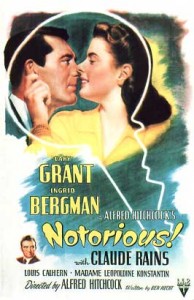
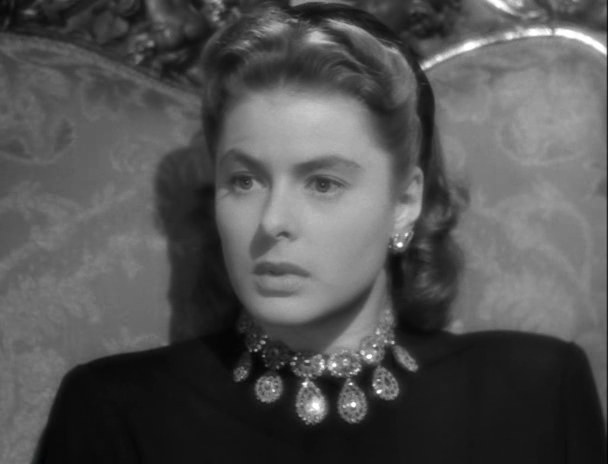
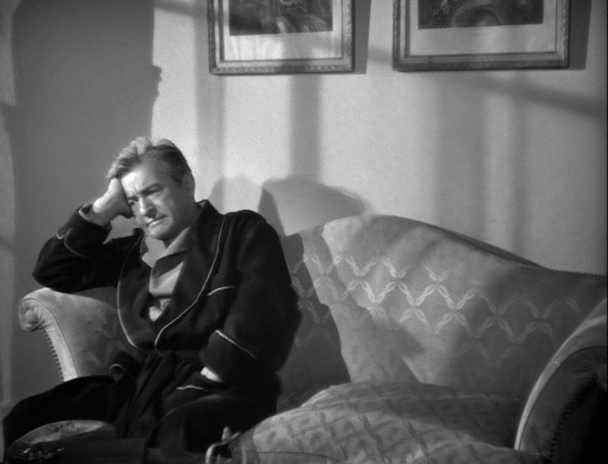
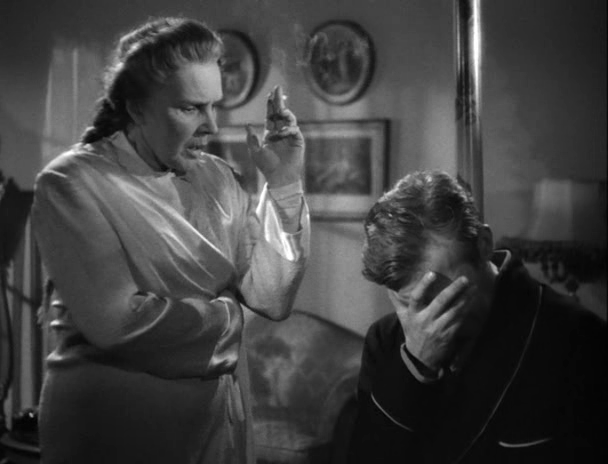
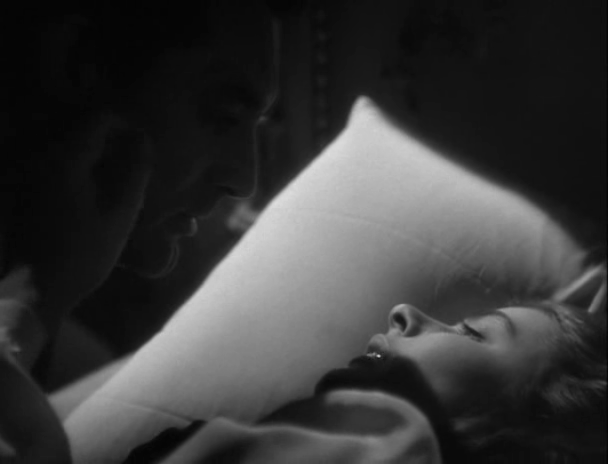
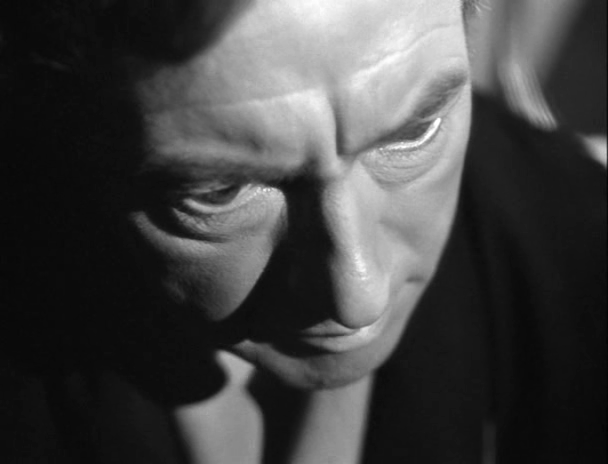
2 thoughts on “Notorious (1946)”
Yes, a must. It’s always been a Hitch flick that I’ve greatly admired – esp. for the very precise way it’s made. But I must admit I never feel pulled into the content of the film especially. It comes across to me as a very accomplished romance/suspense film that has the aim of being a diversion; little more than entertainment.
It does lack humor. It also lacks what it seems to be crying out for: sex. The passion both Grant and Rains feel toward Bergman is implied. But, for me, rushing through – and/or skipping over – the specifics of those emotions tends to leave the first half of the film wanting (sex). (Of course, this is 1946, so what exactly could they do? Hmm…) The fuzziness of Grant’s status as a lover does give him a certain, welcome complexity as the film progresses. So I can at least understand that. (I do not agree with Peary that he is a “lunkhead”; quite the opposite – look at the business he’s in. He’s met Bergman’s type of ‘occupational hazard’ before, surely. Only Bergman herself turns out to be a little different than the others.) But we are made to leap over Rains’ forward pass altogether; all we get is the statement from Bergman that he has quickly become one of her “playmates”. I suppose I’d like to see him…for a lack of a better word…earn his jealousy and possessiveness, rather than jump into it.
I prefer the second half of the film to the first, I guess, cause we switch completely to plot. And that’s also where Konstantin’s ‘Mom’ steps up to the plate. (You can tell how she feels about Bergman, though, on meeting her much earlier. …’Intruder.’) Mom’s plan for Bergman is quite simple, quite clever…and diabolical.
Note: The relationship between Bergman and Grant bears some resemblance to that of Rita Hayworth and Glenn Ford in ‘Gilda’: loving each other, yet fighting each other, even trying to hurt each other. ‘Gilda’, however, is a film that very much pulls me in – its sexiness is somewhat less sophisticated compared to what we witness in ‘Notorious’.
Probably my favourite Hitchcock before he hit that great run of films starting with ‘Vertigo’. I can’t agree that the attraction between Bergman and Grant is implausible. It’s Cary Grant! Grant could be a thoroughly unpleasant person in real life but it didn’t stop many falling in instant lust with him!
I’d like to write a bit about Reinhold Schunzel who plays ‘Dr Anderson’. Schunzel had been born in the poor St Pauli area of Hamburg before rising up as one of the outstanding directors of 1930s’ Germany. He made the original version of ‘Victor and Victoria’ with its fascinating gender-bending and he made the extraordinary critique of militarism ‘Amphitryon’ (which is also tremendously stylish and great fun). Sadly, Schunzel was only able to direct four films when he fled to Hollywood (the first ‘Rich Man, Poor Girl’ is very good) and he ended up as a character actor which is of course his role in ‘Notorious’.